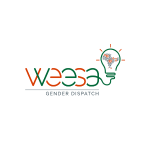

Women’s Economic Empowerment in South Asia (Hosted by SAR GIL)
Tags
- Gender-based Violence (17)
- Water (17)
- Measurement (10)
- Leadership (19)
- Afghanistan (4)
- Social Norms (9)
- Infographics (9)
- Migration (14)
- Transportation (12)
- Green Transition (7)
- Brief (2)
- Empowerment (5)
- Toolkits (13)
- Pakistan (23)
- Energy (26)
- Jobs (43)
- Infrastructure (20)
- Self-help Groups (12)
- Agriculture (12)
- Social Protection (12)
- Digital Inclusion (19)
- Nepal (12)
- Private Sector (27)
- Care Economy (10)
- Bhutan (2)
- Sri Lanka (6)
- Blogs & Articles (34)
- Podcast (33)
- Reports (70)
- India (30)
- Assets and Resources (14)
- Bangladesh (24)
- Maldives (1)
- Climate Change (32)
- Entrepreneurship (31)
- Video (2)
- Financial Inclusion (24)
- Policies and Legislation (14)
- Male Engagement (7)
- Gender Budgeting (7)
- Education and Skills (23)
Archives
- 2023 September (55)
- 2023 October (30)
- 2023 November (20)
- 2023 December (1)
- 2024 January (14)
- 2024 February (14)
- 2024 March (11)
- 2024 April (13)
- 2024 May (93)
- 2024 June (2)
- 2024 July (12)
- 2024 August (16)
- 2024 September (12)
- 2024 October (16)
- 2024 November (27)
- 2024 December (5)
- 2025 January (12)
- 2025 February (18)
- 2025 March (19)
- 2025 April (8)
- 2025 May (12)
- 2025 June (2)

Documents
Advancing Women’s Economic Empowerment: Private Sector Landscaping Study (2022)
This study explores evidence of private sector investments that increase women’s participation in leadership, operations, and supply chains. Drawing on over 500 sources and 46 interviews with multinational and national companies,
The Role of Technology in Reducing the Gender Gap in Productivity (2024)
Using novel firm-level data from 11 countries, this paper sheds light on technology adoption between women- and men-led businesses and how this affects firm performance. While differences in technology sophistication between firms
Lifting Financial Performance by Investing in Women (2023)
Companies that invest in untapped talent and embrace different experiences and perspectives outperform country and industry group peers with the least diverse workforces. This paper analyzes women’s representation in the workforce and
Gender Equality in the Workplace – Policy Review and Recommendations from Pakistan’s Business Sector (2024)
This report spotlights how 38 for-profit companies across Pakistan are creating more equal workplaces for women. Since 2021, the Center of Excellence in Responsible Business (CERB) has partnered with the International Finance
Gender Differences in Job Satisfaction Among Gig Workers in Bangladesh (2024)
Analyzing survey data from 443 gig workers, this study reveals stark gender divides within the online gig economy in platform use and job categories. Women often choose more flexible digital jobs to
The Care Economy: A Case for Expanding the Role of the Private Sector (2025)
This brief examines India’s existing care infrastructure, the gender gap in unpaid care work, and the role of the private sector. On average, Indian women spend 30% of their day on
The Care Economy: A Case for Expanding the Role of the Private Sector (2025)
This brief examines India’s existing care infrastructure, the gender gap in unpaid care work, and the role of the private sector. On average, Indian women spend 30% of their day on
Water, Sanitation, and Women’s Empowerment: A Systematic Review and Qualitative Metasynthesis (2022)
This systematic review of 257 peer-reviewed articles, examines how empowerment-related terminology, research locations, methods, and key themes are used in the water and sanitation sector. While empowerment is increasingly recognized in
Gender Equality and Water Security: A Conceptual Framework and Practical Strategies to Accelerate Progress (2024)
Written for practitioners, this report presents a framework for integrating gender into water projects and provides practical tools for design, analysis, monitoring and evaluation. Using case study examples, it outlines gender-sensitive strategies
Drinking Water and the Implications for Gender Equity and Empowerment: A Systematic Review of Qualitative and Quantitative Evidence (2023)
This comprehensive review of 1,280 peer-reviewed studies examines how drinking water access, quality, and management impact gender equity across five key dimensions: health, psychosocial stress, political power, social-educational conditions, and economic